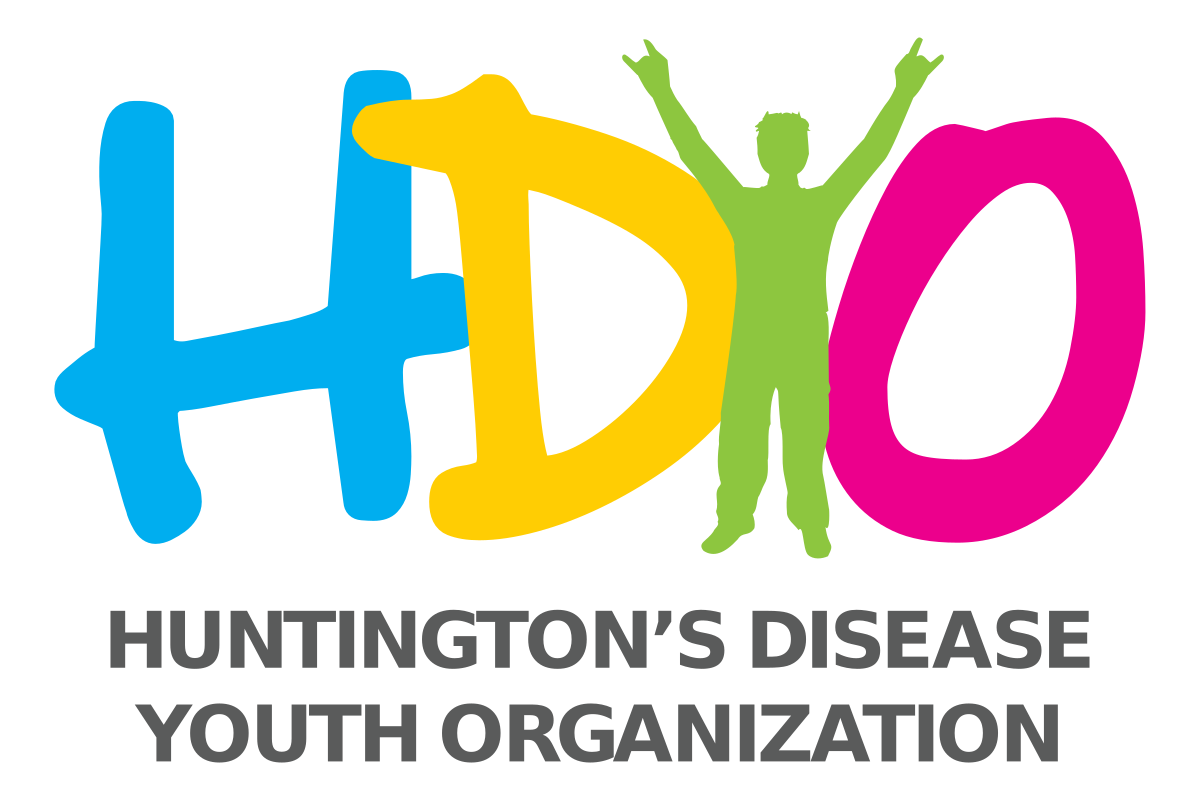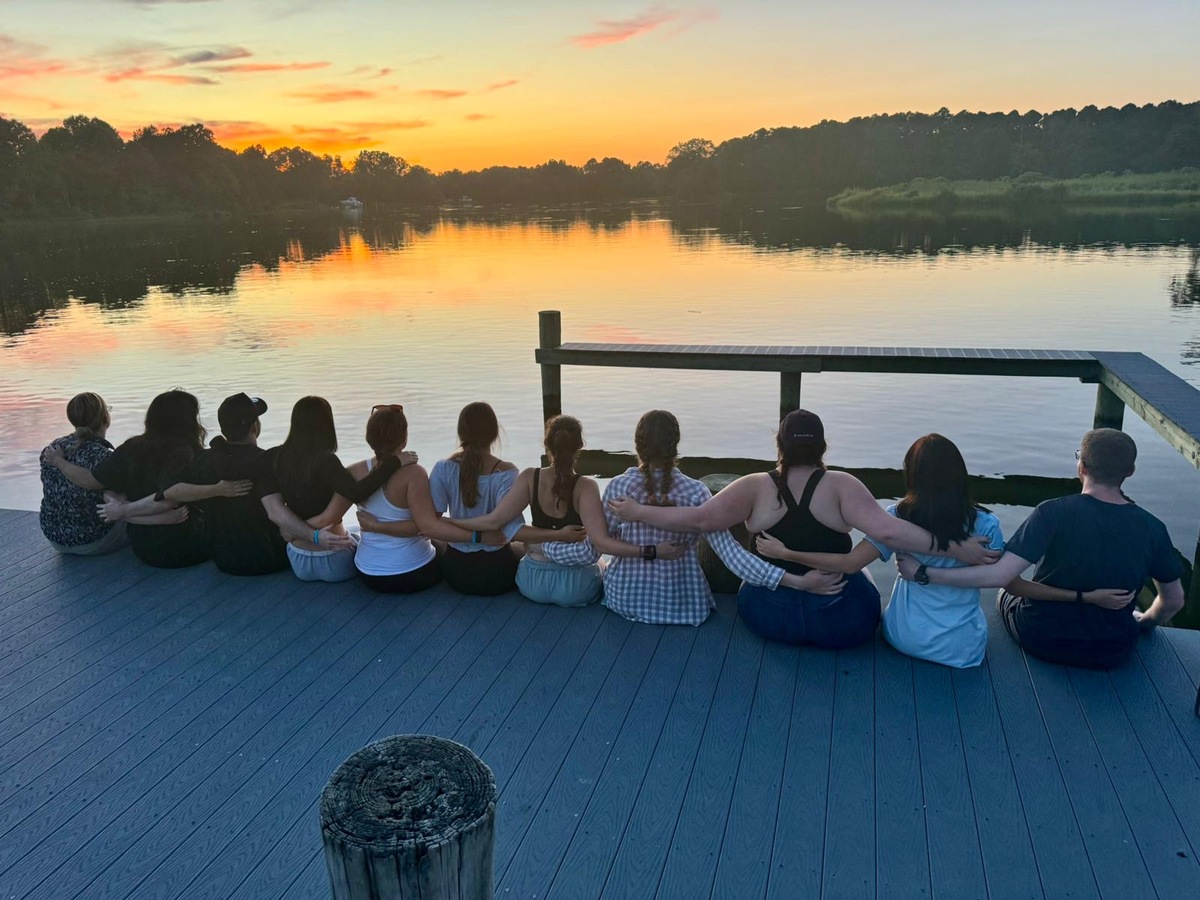Signals to Notice from Young People
July 15, 2024

HDYO has more information about HD available for young people, parents and professionals on our site:
www.hdyo.org
*Reviewed by Education and Research Committees 2024
Young people impacted by Huntington's Disease (HD), often face unique challenges and stressors. As HD professionals, it's imperative to recognize and respond to signals in a timely manner, that may indicate the need for additional support and guidance. This article aims to show the importance of being observant and proactive in intervening, when necessary, to ensure the well-being of these individuals and their families. Some of the commonly noticed signals displayed by young people and suggestions on how to offer further attention and assistance are described here.
Importance Of Observation And Responsive Intervention
Young people in the HD community may experience a range of emotional, psychological and social challenges which can affect their quality of life. Sometimes a young person may be reluctant to reach out for our support. When they do, they need to be met where they are in their HD journey, in a supportive and safe manner. Timely intervention can mitigate the negative effects of these challenges, encourage further involvement with resources and additional support, to improve overall outcomes for the young person. Professionals can empower young people to navigate the complexities of living with HD and build resilience for their future.
Signals Requiring Professionals’ Intervention:
This section highlights some possible signals that may require professional intervention. It also discusses what professionals can do to support young people in these circumstances along with some useful HDYO resources.
Self-Harming Behavior
Self-harming behaviors may be a coping mechanism for dealing with the emotional and psychological challenges associated with knowledge of HD in the family. Professionals should be vigilant for signs. These include unexplained cuts, bruises, burns, scratches, marks on their body, suicidal ideation, changes in behavior. Also look out for excessive covering of the body, including wearing long sleeves or pants even in warm weather. It's crucial to approach individuals displaying self-harming behaviors with empathy and understanding.
Professionals can gently broach the topic in non-threatening environments, such as during walks, art and craft sessions and game activities to foster a safe space for open dialogue. Some examples to initiate the conversation might include, " I care about you and your well-being and I've noticed some changes that concern me. Can we talk about what's been going on for you lately?" or " I've noticed that you seem to be going through a tough time lately, and I'm here to listen if you want to talk about anything that's been bothering you."
Professionals can provide access to mental health resources, such as counseling and therapy, implement safety plans and connect individuals with appropriate support services. If you are not a licensed mental health professional, you can refer the young person to a licensed therapist for more in-depth psychiatric evaluation. If someone contacts you with a life-threatening situation and you are not trained in emergency responses, it's imperative to call emergency services including law enforcement and an ambulance immediately.
HDYO Resource: Breaking Down Barriers - Conversations Around Suicidal Ideation and Self-Harm
Emotional Stressors
Young people impacted by HD may experience emotional stressors, which can manifest as poor work or school performance, frequent mood swings and heightened anxiety or depression. Some of those stressors can come from watching loved ones with symptoms, coping with their own at-risk status, being faced with tough decisions regarding care support and genetic testing. It's crucial for professionals to recognize these signals and offer support through counseling, psychoeducation and referrals to mental health services.
Additionally, professionals can provide resources for stress management techniques and encourage self-care practices. Some stress management techniques include deep breathing exercises, progressive muscle relaxation, mindfulness meditation and engaging in physical activity. Self-care practices may include maintaining a healthy diet, regular exercise, adequate sleep, engaging in hobbies or activities that bring joy, and setting boundaries with work or social obligations. For more information on stress management techniques and self-care practices, please refer to articles such as "10 Tips to Manage Stress” and " What Is Self-Care, and Why Is It So Important for Your Health?.
HDYO Resource: Coping, Emotional Wellbeing, Huntington's Disease - Emotional Wellbeing - Marthe's Experience
Social Withdrawal
Social withdrawal can be a common response to the challenges of coping with HD. Professionals should be attentive to signs of isolation and disengagement from social activities. They can help young people overcome social withdrawal, by facilitating social activities or peer support groups, where they can connect with others who understand their experiences. Encouraging participation in community events or hobbies can also help individuals re-engage with others.
Additionally, engaging in social media to stay connected can be beneficial, especially for those young people who may not have access to community events. If you are unsure about what community activities are available in your area, you can click this link HDYO Local Resources page or contact us at info@hdyo.org directly, to help young people connect with relevant opportunities and support networks.
HDYO Resource: Coping, Emotional Wellbeing
Feelings Of Loneliness
Feelings of loneliness are prevalent among young people impacted by HD due to the stigma and misunderstanding surrounding the disease. Often young people face challenges that can be unrelatable to peers. This can limit their support network causing them to retreat. These situations include, becoming a young caregiver, having financial struggles and fear of bullying because their family is different.
Professionals can validate young people’s feelings of loneliness and provide opportunities for connection and support. This may include organizing social events, facilitating peer relationships, or connecting individuals with online support communities. If you are in a community where it is challenging to find others impacted by HD, consider contacting HDYO to connect with others who share similar cultural backgrounds and experiences.
HDYO Resource: Coping, Emotional Wellbeing
Family Issues
Family issues, such as strained relationships and conflicts, can increase the challenges of living in an HD family. Young people impacted by HD can often face complex family dynamics, including role reversal, financial struggles, lack of openness about the disease and the presence of multiple family members with HD. Role reversal, where young people become caregivers for their affected relatives, is common and can lead to emotional and practical challenges. Financial strain can arise from high HD-related costs, exacerbating stress. Stigma surrounding HD often leads to silence about the disease, causing feelings of isolation. The presence of multiple family members with HD adds to the emotional and physical burden. Some young people may also start to consider needing long term care for their loved ones affected by HD.
Professionals can play a crucial role in facilitating open and supportive communication within the family. They can provide guidance on how to approach difficult conversations and encourage family members to express their feelings and concerns openly. Professionals can also offer support and resources to help families navigate complex dynamics, provide guidance on genetic testing, offer family planning options and access appropriate care and support services. Professionals can also assist families in exploring care options, provide information on available long term care facilities and offer support throughout decision-making processes. By addressing these multifaceted family issues and considering the potential need for long term care, professionals can help families cope with the challenges of HD, fostering resilience and support within the family unit.
HDYO Resources: Living in a Family with HD, Relationships
Concerns About Future Planning
Young people impacted by HD often grapple with profound concerns about their future. Many may hesitate to make any long-term plans due to the uncertainties and challenges associated with HD. The fear of being left by partners or loved ones as the disease progresses, or the anxiety of losing loved ones, can weigh heavily on their minds. These concerns can lead to feelings of isolation, anxiety and apprehension about the future. In the context of marriage and family planning, individuals impacted by HD may face unique challenges. They may worry about passing on the HD gene to their children or about the possibility of their partner having to take on a caregiver role in the future. These concerns can make discussions about marriage and family planning particularly complex and emotionally charged.
Professionals play a crucial role in addressing these concerns and providing support to young people impacted by HD. In addition to offering guidance on marriage and family planning, professionals can offer counseling and resources to help individuals navigate their fears and uncertainties about the future. This may involve, facilitating open and supportive discussions about the impact of HD on relationships and providing strategies for coping with the emotional challenges associated with the disease. By addressing these future planning concerns and providing tailored support, professionals can help young people impacted by HD navigate their journey with greater resilience and empowerment.
HDYO Resource: Having Children, HDYO 2023 Congress
Desire For Connection With HD Community
Expressing a desire to connect with others who understand the challenges and nuances of HD is a significant step toward seeking support and finding solidarity within the community. This acknowledgment of shared experiences can offer comfort, reassurance and valuable insights into coping strategies and resources. Professionals play a crucial role in facilitating these connections. They can provide guidance on accessing HD support groups, advocacy organizations and peer mentorship programs tailored to individuals and families impacted by HD. By actively encouraging participation in these networks, professionals help individuals build a supportive community where they can freely share their concerns, fears, and triumphs. In addition, HDYO is a great resource thanks to our vast connections with professionals, associations and community members.
Contact HDYO if you would like advice on what connections may be beneficial.
HDYO Resource: Local Resources, Staying Connected Online
Signals Requiring Additional Support:
Some signals may require involving others, to provide comprehensive support to young people impacted by HD:
- Signals Requiring Parents/Guardians’ Involvement: Any signals from minors indicating immediate risks or significant distress, should involve parents or guardians for support and decision-making. Learn more about parent/guardian’s involvement here.
- Signals Requiring HD Associations and Partners’ Involvement: It can be very beneficial for professionals to collaborate with HD associations and partners. These collaborations can help to access resources, advocacy, and specialized services tailored to the needs of young people impacted by HD.
- Signals Requiring Licensed Therapist Involvement: Not all professionals are trained and qualified to handle all kinds of mental health issues. If the situations are out of their professional scope, especially if faced with a young person who is experiencing a severe mental health episode, and/or self-harm, including suicidal ideation, professionals should refer to an appropriate licensed professionals as well as emergency services for psychiatric evaluation.
While it is essential to offer support and intervention, it is equally important for professionals to respect the boundaries and autonomy of young people impacted by HD. Recognizing and honoring different levels of readiness for accepting intervention is key to building trust and rapport. Professionals should engage individuals in goal-setting collaboration and empower them to make informed decisions about their care and support.
The following are some important areas to bear in mind when supporting young people impacted by HD.
- Seeking consent: Obtaining consent before offering assistance or interventions and respecting the young person’s right to make their own choices. Exceptions would be in emergency circumstances such as self-harm or suicidal ideation.
- Empathy: Recognize and validate the young person’s experiences and feelings without imposing personal beliefs or judgments.
- Flexibility: Be flexible and adaptable in your approach and recognize that each young person has different needs and preferences for support.
- Boundaries: Maintain professional boundaries and avoid overstepping by refraining from intrusive or overbearing behaviors.
Conclusion
By being attentive to signals, intervening proactively and collaborating with other partners, professionals can effectively support young people impacted by Huntington's Disease. Through compassionate care, advocacy, and empowerment, professionals can enhance the quality of life and well-being of young people and families impacted by HD.



